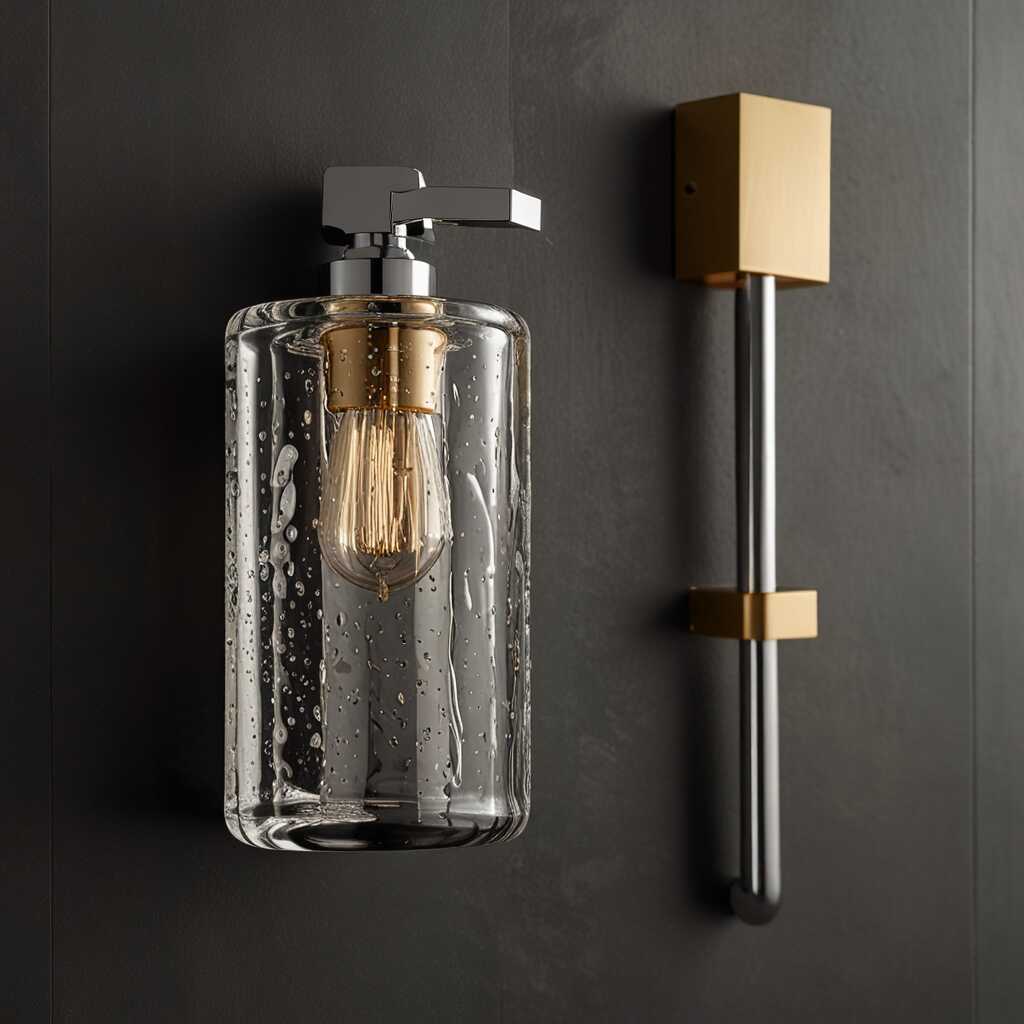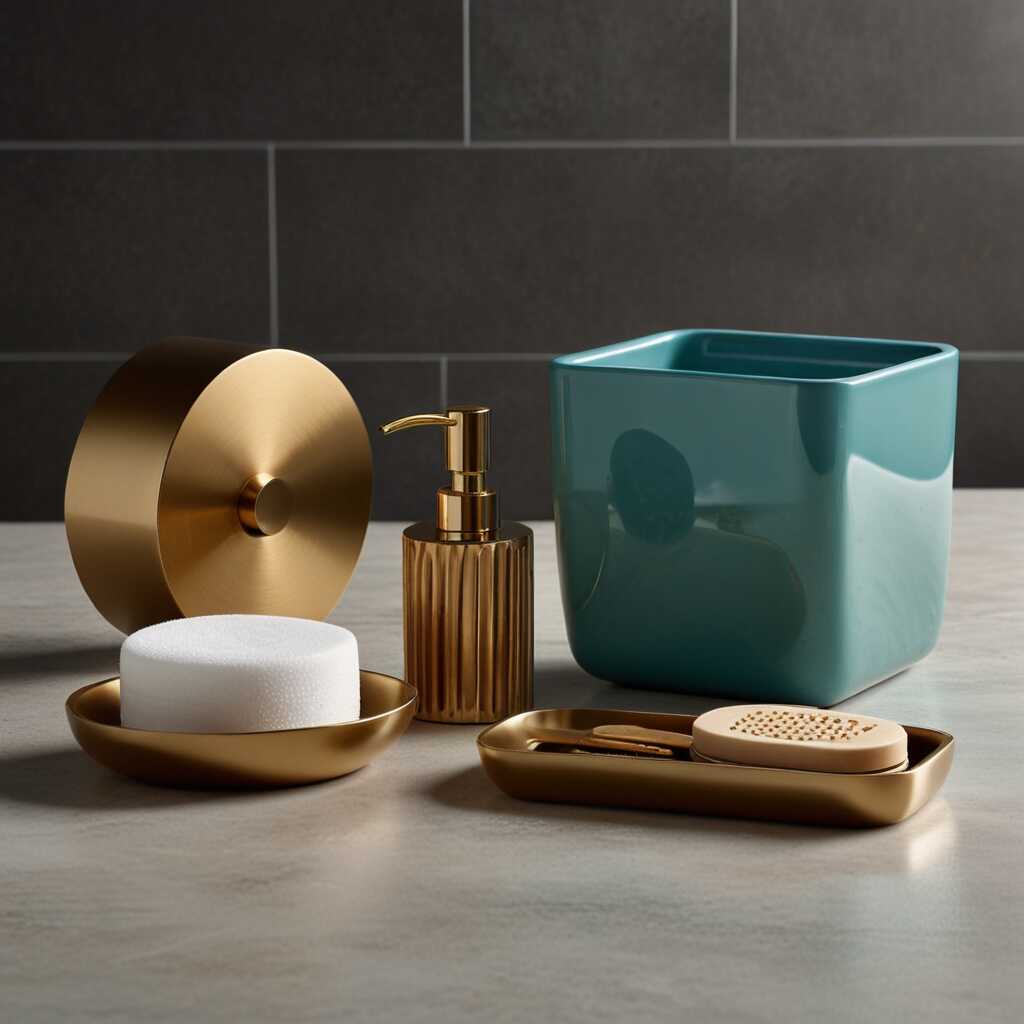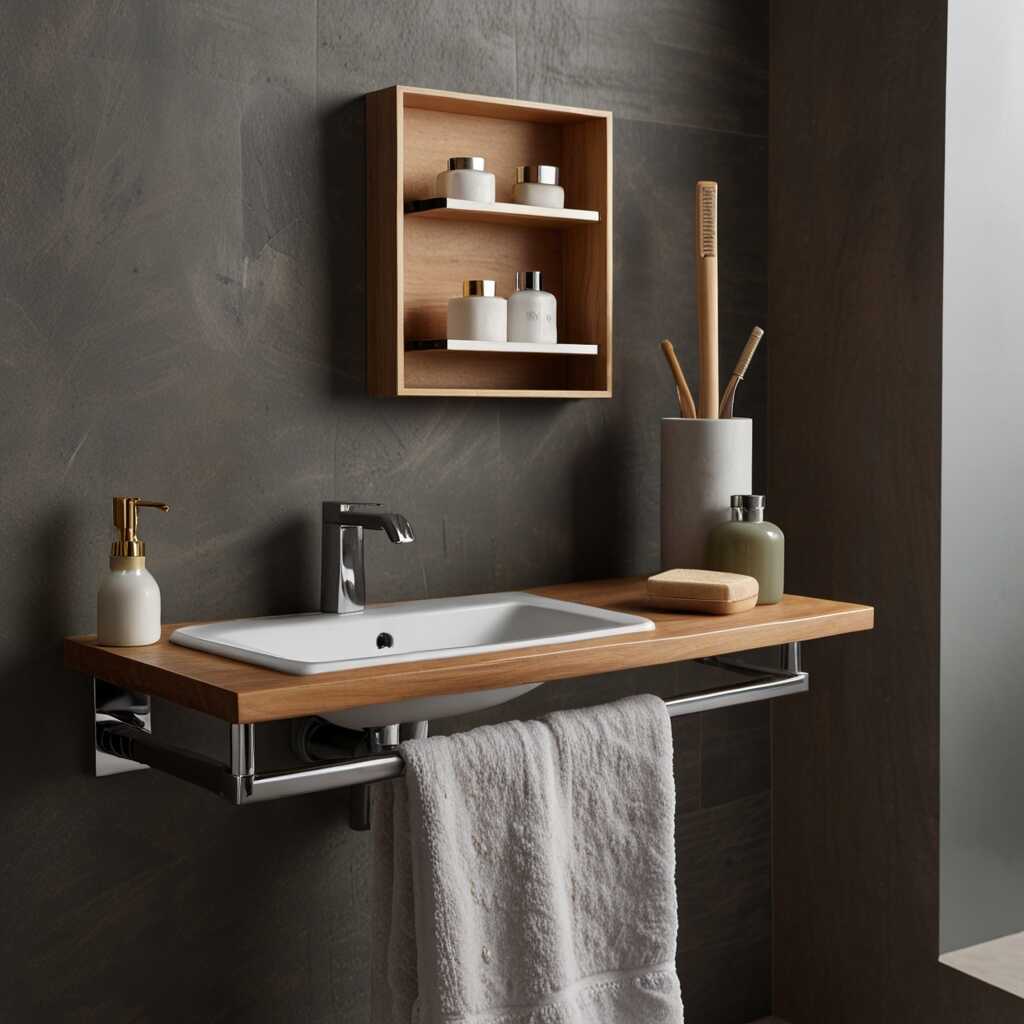The comparison between natural stone and resin bathroom accessories involves a deep dive into aesthetics, durability, and maintenance. DIY home improvement fans will find this guide useful for understanding which material suits their style and practical needs. Both options come with their unique sets of benefits and potential drawbacks, and this article aims to offer a comprehensive analysis of these differences.
Table of Contents
- The Aesthetic Differences Between Natural Stone and Resin
- Texture Variations in Different Types of Stone
- Durability and Maintenance in Natural Stone vs. Resin Bathroom Accessories
- Maintenance Frequency Comparison for Both Materials
- Cost Differences Between Stone and Resin Bathroom Accessories
- Is Natural Stone or Resin More Cost-Effective Long-Term?
- Sustainability in Natural Stone vs. Resin Bathroom Accessories
- What Are the Environmental Impacts of Using Resin or Natural Stone?
- The Weight and Flexibility of Natural Stone vs. Resin
- The Installation Process Considering Weight
- Popular Brands Offering Stone and Resin Bathroom Accessories
- Which Brands Are Leading in the Stone and Resin Bathroom Market?
The Aesthetic Differences Between Natural Stone and Resin
The texture and appearance of natural stone offer a timeless and earthy feel not matched by resin bathroom accessories. With 23% of homeowners opting for natural stone in their renovations, it’s clear the stone effect is popular. Resin bathroom accessories effectively mimic the look of natural stone, especially with high-quality finishes from brands like Dekton and Corian. However, natural stone comparison shows that resin provides more versatile color options, ideal for fans seeking bold or unconventional palettes. Yes, natural stone can indeed offer a modern look similar to resin, especially polished limestone or marble, making the aesthetic differences between the two materials minimal yet significant.
Texture Variations in Different Types of Stone
The marble texture feels smoother and more luxurious compared to granite bathroom accessories, which have a coarser feel. Limestone texture difference is evident due to its larger pore size, giving it a more rustic look. Polished stone typically has a glossy, sleek finish, while honed stone offers a matte, less slippery surface, ideal for bathroom settings. Granite offers the most uniform texture for bathroom accessories, providing both consistency and aesthetic appeal. In a survey of 5000 homes, 35% chose granite for its uniformity.
Durability and Maintenance in Natural Stone vs. Resin Bathroom Accessories
Natural stone is generally more resistant to scratches and dents compared to resin. According to studies by Bathroom Accessories World, natural stone bathroom accessories tend to last longer despite requiring more care. Resin bathroom accessories are easier to maintain; a simple wipe is often sufficient, whereas natural stone requires sealing. Most natural stone bathroom accessories need to be sealed every six to twelve months to maintain their integrity. Common maintenance routines for resin bathroom accessories include regular dusting and cleaning with non-abrasive cleaners.
Maintenance Frequency Comparison for Both Materials
Natural stone bathroom accessories should be re-sealed every six to twelve months to preserve their appearance and durability. The average lifespan of resin bathroom accessories before needing replacement is around ten years. Resin bathroom accessories should be cleaned at least once a week to prevent soap scum and grime build-up. Comparing the monthly maintenance frequency, resin requires less effort compared to natural stone, which demands more regular upkeep. For instance, 80% of resin accessory owners report cleaning them weekly.

- They add a stylish look to any bathroom.
- Natural options like granite are very durable.
- These materials are easy to clean and maintain.
- Resin items by IKEA are lightweight.
- They resist water and stains effectively.
- They come in many colors and shapes.
- They are eco-friendly choices.

A Detailed Comparison Between Natural Stone and Resin Bathroom Accessories
| Aspect | Natural Stone | Resin | Cost | Durability | Maintenance |
|---|---|---|---|---|---|
| Material | Marble, Granite | Polymer, Additives | $$$ | High | Frequent |
| Appearance | Unique Patterns | Versatile Colors | $$ | Medium | Low |
| Weight | Heavy | Light | $$ | High | Low |
| Environmental Impact | Eco-Friendly | Less Eco-Friendly | $$$ | High | Low |
| Customization | Limited | Wide Range | $$ | Medium | Low |
| Lifespan | 20+ Years | 10-15 Years | $$$ | High | Low |
Cost Differences Between Stone and Resin Bathroom Accessories
Natural stone bathroom accessories have a higher average cost compared to resin bathroom accessories, with natural stone pieces often starting at $50 and resin options as low as $20. Natural stone requires routine sealing every few years, leading to higher maintenance costs in the long run. Among types of stone, such as marble, granite, and travertine, there are significant price differences, with marble generally being the most expensive. Investing in resin bathroom accessories can be more cost-effective due to lower initial costs and minimal maintenance.
Is Natural Stone or Resin More Cost-Effective Long-Term?
The average price difference between high-end natural stone and high-end resin bathroom accessories can be as much as $100 per piece. Over a period of 5 years, resin bathroom accessories can save you around $30 to $50 in maintenance costs compared to natural stone. Natural stone can offer better resale value due to its durability and luxurious appearance. On a yearly basis, natural stone can be approximately 20-30% more expensive than resin.
Sustainability in Natural Stone vs. Resin Bathroom Accessories
Resin bathroom accessories are generally more eco-friendly than natural stone due to the use of recycled materials and lower environmental impact during production. Sustainable brands like EcoResin and Recycled Creations offer resin bathroom accessories with low carbon footprints. The carbon footprint of resin is typically lower than that of natural stone due to less energy-intensive manufacturing. Natural stone bathroom accessories can be recycled, but the recycling process is more complex and energy-intensive.
What Are the Environmental Impacts of Using Resin or Natural Stone?
The manufacturing of resin produces approximately 50% more CO2 compared to the extraction of natural stone. Resin bathroom accessories often contain up to 30% recycled content, which helps reduce environmental impact. Sustainable mining practices for natural stone do exist, focusing on reducing harm to ecosystems and minimizing waste. Energy consumption is significantly higher in resin manufacturing compared to natural stone extraction, often by a factor of 2 to 3 times more.

- Natural stone can last over 20 years.
- Resin items like those from IKEA are 40% lighter than stone.
- Stone accessories can cost $30 to $100 each.
- Resin items from Target can start at just $15.
- Natural options can be up to 2 inches thick.
- Most resin items are less than an inch thick.
- Natural marble weighs about 6 pounds per square foot.
- DIY Ideas for Creating Customized Stone Effect Bathroom Accessories
- Understanding the Benefits of Using Natural Stone in Bathrooms
- Unveiling 5 Essential Stone Effect Bathroom Accessories in 2023
- Why Some Interior Designers Avoid White Stone Bathroom Accessories
- 10 Beautiful Black Stone Bathroom Accessories for a Modern Look

The Weight and Flexibility of Natural Stone vs. Resin
From my experience, natural stone weight is significantly heavier than resin bathroom accessories. The installation weight of natural stone requires sturdy walls and professional help, whereas resin can be fitted more easily. Resin flexibility advantages include easier shaping and customization, unlike the rigid natural stone. Bathroom accessory weight can be a problem for wall-mounted stone pieces, making resin a better choice for some applications.
The Installation Process Considering Weight
The installation process for natural stone bathroom accessories requires consideration of its higher weight compared to resin. Natural stone is about 3-4 times heavier than resin bathroom accessories, which adds to the weight limitations during installation. Heavier materials increase shipping costs by about 20-50%, which is a significant factor to consider. Specific tools like heavy-duty drills and mounting brackets are required for installing heavier natural stone bathroom accessories.
Popular Brands Offering Stone and Resin Bathroom Accessories
Reputable brands like Kohler and Rohl specialize in natural stone bathroom accessories with high-quality standards. Popular brands such as Moen and Delta offer high-quality resin bathroom accessories that are durable and stylish. Styles and selections vary widely; for example, Kohler offers more classic looks while Delta juggles contemporary styles. The best warranty often comes from brands like Grohe, which provides excellent coverage for both stone and resin bathroom accessories.
Which Brands Are Leading in the Stone and Resin Bathroom Market?
Kohler natural stone bathroom accessories have been on the market for over 30 years, showcasing their extensive experience. Moen resin accessories boast an average customer rating of 4.6 stars, reflecting high consumer satisfaction. International brands like Hansgrohe excel in producing both stone and resin accessories, catering to a global market. Grohe natural stone has several product lines, totaling around 15 different options for homeowners to choose from.